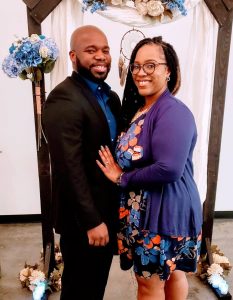Black History Month: Demonstrating Hope
By Chef Manager Orlando Fowling, Eastern Division
 I am not native to this country and I grew up never having to deal with race issues or injustice because of my skin tone. Upon arriving to the U.S., however, it became blatantly apparent that skin color, status and the opportunity given plays a major role in one’s success.
I am not native to this country and I grew up never having to deal with race issues or injustice because of my skin tone. Upon arriving to the U.S., however, it became blatantly apparent that skin color, status and the opportunity given plays a major role in one’s success.
Recognizing these realities, I started working with the sheriff’s department in the town I currently reside. I teach incarcerated individuals how to cook and conduct themselves in a hospitality setting. Often, my class demographic was filled with people from various minority groups. I began this venture when an ex-professor of mine that knew too well the hardships I faced as a young man. My ex-professor reached out and offered me the opportunity to change the course of less fortunate individuals.
After receiving my hospitality degree and beginning to teach at the correctional facility, I thought my journey was all set. I’ve had some exceptional students that went on to work and manage great eateries; however, when many students were released, they were reincarcerated with harder time. Something began to bother me… I began to ask questions like, “Was this enough?” and “Am I making a difference?”
It became discouraging and overwhelming at times to see individuals that look like me continue to go through the same dead-end system. It became a heavy conviction to ignore. I continued my education and decided not to just teach but to show another path to success for Black and Brown individuals like myself.
I now consult with the district attorney’s office, in conjunction with the sheriff’s department to increase the success and livelihood of incarcerated individuals to remaining in society verses returning behind the walls.
So, I stand here today as a Chef Manager, with my eyes and heart filled with “hope.” This means demonstrating another level of “hope” in my community. Maybe that little dream MLK had can continue to come true, with a little bit more “hope.”

